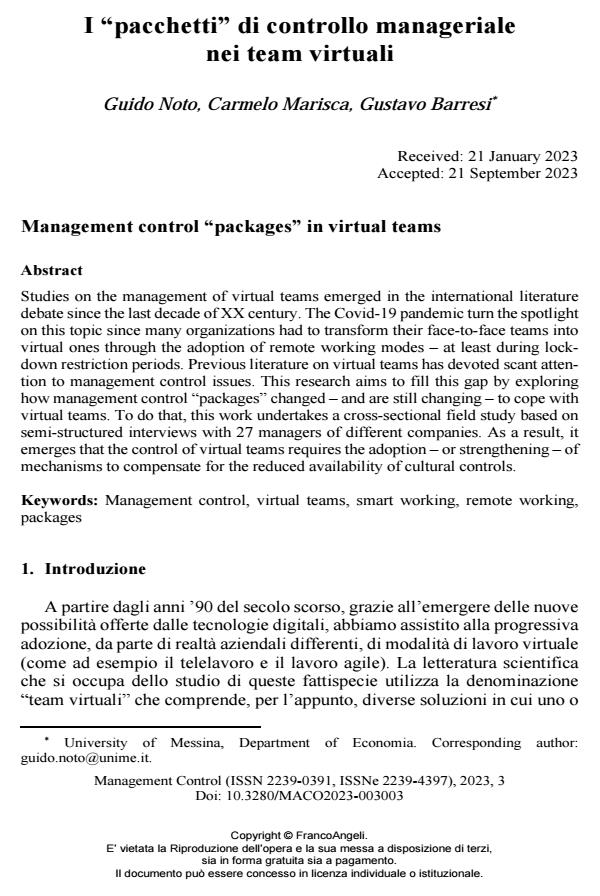I "pacchetti" di controllo manageriale nei team virtuali
Titolo Rivista MANAGEMENT CONTROL
Autori/Curatori Guido Noto, Carmelo Marisca, Gustavo Barresi
Anno di pubblicazione 2024 Fascicolo 2023/3
Lingua Italiano Numero pagine 20 P. 43-62 Dimensione file 239 KB
DOI 10.3280/MACO2023-003003
Il DOI è il codice a barre della proprietà intellettuale: per saperne di più
clicca qui
Qui sotto puoi vedere in anteprima la prima pagina di questo articolo.
Se questo articolo ti interessa, lo puoi acquistare (e scaricare in formato pdf) seguendo le facili indicazioni per acquistare il download credit. Acquista Download Credits per scaricare questo Articolo in formato PDF

FrancoAngeli è membro della Publishers International Linking Association, Inc (PILA), associazione indipendente e non profit per facilitare (attraverso i servizi tecnologici implementati da CrossRef.org) l’accesso degli studiosi ai contenuti digitali nelle pubblicazioni professionali e scientifiche.
Studies on the management of virtual teams emerged in the international literature debate since the last decade of XX century. The Covid-19 pandemic turn the spot-light on this topic since many organizations had to transform their face-to-face teams into virtual ones through the adoption of remote working modes – at least during lockdown restriction periods. Previous literature on virtual teams has devot-ed scant attention to management control issues. This research aims to fill this gap by exploring how management control “packages” changed – and are still chang-ing – to cope with virtual teams. To do that, this work undertakes a cross-sectional field study based on semi-structured interviews with 27 managers of different companies. As a result, it emerges that the control of virtual teams requires the adoption – or strengthening – of mechanisms to compensate for the reduced availability of cultural controls.
Parole chiave:Management control, virtual teams, smart working, remote working, packages
Guido Noto, Carmelo Marisca, Gustavo Barresi, I "pacchetti" di controllo manageriale nei team virtuali in "MANAGEMENT CONTROL" 3/2023, pp 43-62, DOI: 10.3280/MACO2023-003003